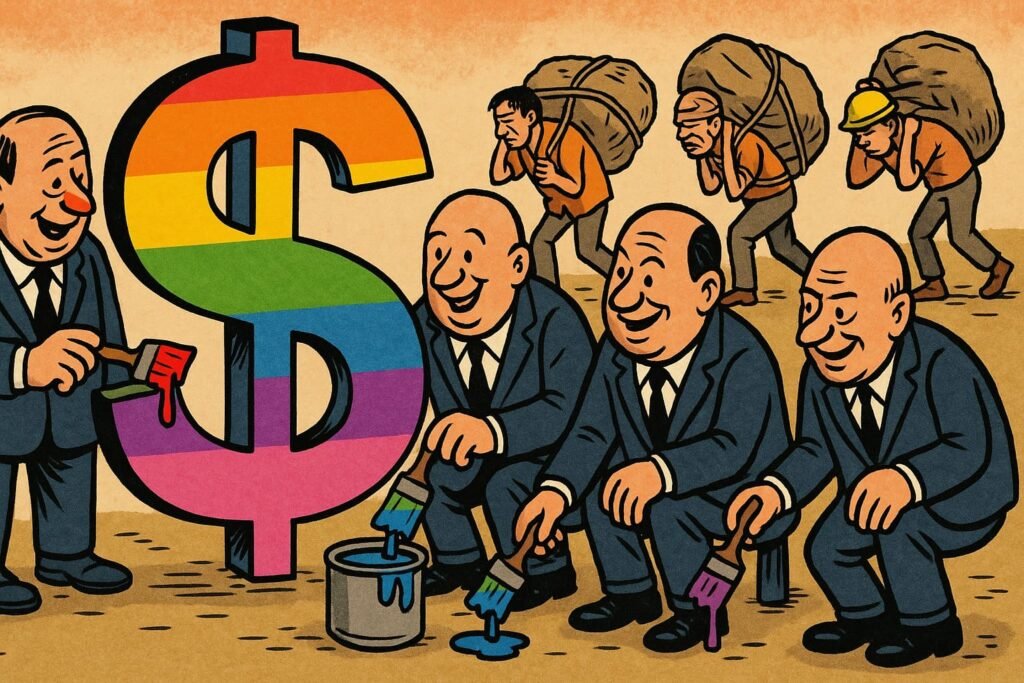Inclusivity for Elites – Branding, Profit, Control
Inclusivity sounds noble. Who could be against fairness, diversity, or welcoming everyone? But when the rich and powerful talk about inclusivity, it usually means something else: a strategy for image, profit, and control.
From corporations to billionaires, inclusivity has become a buzzword that protects reputations, expands markets, and keeps critics quiet. Let’s cut through the slogans.
Table of contents
Branding – The Virtue Mask
For elites, inclusivity is PR gold.
- Slap a rainbow on the logo.
- Sponsor a diversity award.
- Roll out glossy campaigns about “belonging.”
The message: “We’re not just rich, we’re good.”
In practice, it’s a cheap way to deflect criticism. As long as they’re seen supporting the right causes, few ask awkward questions about tax avoidance, offshored jobs, or stagnant wages.
Profit – Expanding Markets
Inclusivity also opens wallets.
- New identity groups = new customer bases.
- Diversity branding = higher loyalty among younger consumers.
- DEI = a ticket to ESG-friendly investment.
It’s less about justice, more about sales. By framing inclusivity as a moral obligation, elites turn basic marketing into a virtue.
Think of it as capitalism’s favourite trick: repackage self-interest as compassion.
Control – Silencing Dissent
Inclusivity isn’t just branding; it’s a shield.
- Speak against DEI quotas? You’re a bigot.
- Question ESG scoring? You’re anti-progress.
- Raise concerns about migration? You’re “phobic.”
By weaponising inclusivity, elites stifle debate. They get to dictate the moral terms of politics and business while critics are pushed out of the conversation.
It’s not equality. It’s a power move.
Why It Matters
Elites didn’t “discover” inclusivity because they suddenly cared about justice. They discovered it because it:
- Protects their image.
- Expands their profits.
- Shields them from scrutiny.
For the rich, inclusivity isn’t about fairness. It’s a business model.
Related Articles
- Stakeholder Capitalism – The Corporate Takeover of Democracy
- DEI – Inclusion for Sale
- ESG – The Business of Virtue
- For the bigger picture of how corporations gained their power, visit The Power of Business & Corporations Explainer Hub.
FAQ
Why do corporations push inclusivity so hard?
Because it boosts reputation, secures ESG-friendly investment, and attracts younger consumers.
Is inclusivity always fake?
Not always — but when elites push it, it’s usually tied to profit or control.
How does inclusivity silence debate?
By branding critics as intolerant, which shuts down legitimate concerns about costs, fairness, or unintended consequences.
What’s the link to ESG and DEI?
Inclusivity is one of the “moral” levers inside ESG/DEI frameworks. It turns corporate compliance into moral branding.



